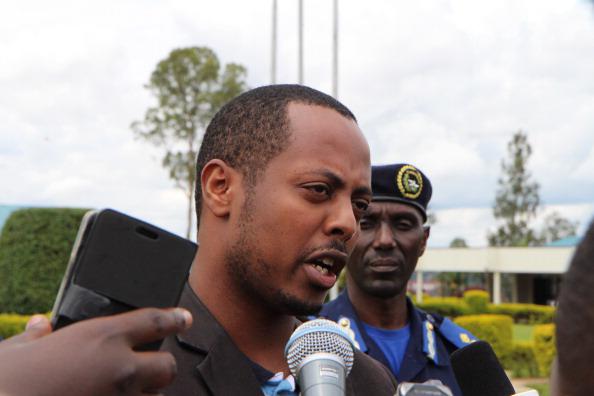A strange story out of Rwanda: A well-known gospel-singer named Kizito Mihigo has confessed to conspiring with exile and rebel groups to overthrow the regime of president Paul Kagame—but many Rwandans wonder if he’s been railroaded because he released a song that challenged the government’s (self-serving) official account of the country’s 1990s genocide.
From Al-Jazeera:
Last month, as the trial of Mihigo and three co-defendants began in Kigali, Mihigo, dressed in a pink prison uniform…pleaded guilty to the long list of charges: forming a criminal gang, aiding the formation of a criminal gang, conspiracy against the established government or president of the republic, complicity in a terrorist act, murder and conspiracy to commit murder. But he and his attorneys also argued that he never intended to carry out the alleged acts — the most serious of which, according to prosecutors, was planning the assassination of Kagame.
Mihigo’s co-defendants have pleaded not guilty, and one says he was coerced into confession; the judicial system in Rwanda is known to be subject to political influence, and Al-Jazeera’s story suggests that the singer might simply have decided to cut his losses rather than fight an uphill battle to prove his innocence. In the background of the entire affair is a song he released in March called “Igisobanuro Cy’urupfu” (“The Meaning of Death”):
The melancholy ballad, which tells of “lives brutally taken but not qualified as genocide,” is an unmistakable challenge to the image of Kagame’s RPF as saviors who pacified the country. Despite putting a stop to the genocide — the 100-day mass murder of up to a million Tutsi and moderate Hutu orchestrated by extremists in the former government — Kagame’s troops have been implicated by multiple U.N. investigations in the killing of tens of thousands of civilians during the genocide period in Rwanda and in subsequent invasions of neighboring Congo. As the Rwanda scholar Gérard Prunier has written, the violence inflicted by the RPF in the genocide’s aftermath, largely though not exclusively against Hutu, was not merely a case of “uncontrolled revenge killings,” as RPF defenders often argue, “but rather a policy of political control through terror.”
Kagame has held office since 2000, winning over 90 percent of the popular vote in 2003 and 2010 elections that, not surprisingly, were criticized as undemocratic and fraudulent by outside observers.
